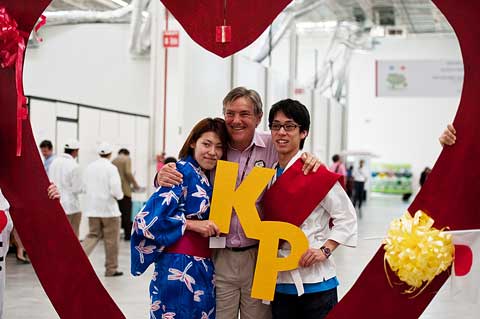 T
T
This is Barry Coates of Oxfam NZ’s fourth report from COP16 in Cancún: now we’re getting down to the nitty gritty…
Things are starting to move here in Cancun. Most of the Ministers arrived today, joining around 30 who have been around since the weekend. Some were shoulder-tapped to do consultations on key issues, including the New Zealand Minister Tim Groser, who has been paired with the Indonesian Minister to consult on mitigation and MRV – which is how to go about Measuring, Reporting and Verifying emissions cuts – one of the really tough nuts to crack.
The arrival of politicians can help unlock these talks. In the past three years there has been some progress but at this rate we may be negotiating for the next decade. A major problem has been that the political mandate has never been clearly defined for the negotiators – this was obvious when the current round was kicked off in Bali in 2007. The subsequent summit in Poland failed to make important political decisions, leaving a log-jam for Copenhagen in 2009.
There is some interesting re-thinking of what Copenhagen achieved or not. Certainly it was badly chaired by Denmark (not the fault of the Environment Minister who is now with the EU) and it damaged trust between countries. But, as Michael Jacobs, former climate adviser to Gordon Brown (and old friend from my UK days) has written, the Copenhagen Accord was never officially adopted but countries accounting for around 85 per cent of global emissions have put in pledges under it. The Copenhagen Accord, for all its failings and bad process, has provided some of the political direction that has been lacking.
So in preparation for Ministers starting the “high level segment”, the pace of negotiations accelerated today. It’s been a juggling act, with my time divided between analysing the last draft of the section on finance (the “text”) to understand what changes are being made, who is making them and where there is scope for the points Oxfam wants to see included; lobbying delegations; writing articles; coordinating Oxfam’s policy team work; tracking the flow of information on email and Skype chats; networking with allies, generally through the coordinating group, Climate Action Network; and doing media interviews (from Al-Jazeera to USA Today!)
In all of this, I did not get a chance to join a march involving the international farmer’s movement, Via Campesina, the indigenous people’s networks and of a host of social movements and NGOs from Mexico and across Latin America (Flickr photoset).
Evenings are the time for meetings. Tonight was the New Zealand delegation reception, with the Minister, Nick Smith and the NZ negotiating team (but not Tim Groser who was tied up in consultations). The highlight was the presentation of an amazing fern mounted on a long sheet, containing hundreds of signatures (I couldn’t even see where mine was) and messages for the negotiations. The fantastic NZ Youth Delegation, who made the fern, gave a speech about the importance of the talks, especially for their future. They have been doing some great campaigning on the accounting rules for forests (called LULUCF for all you policy wonks). I will include some photos in the next blog.
But in amongst all of this, has been the opportunity to discuss strategy for climate change campaigning with allies in the Global Campaign for Climate Action – the tcktcktck campaign. Key people from Oxfam, Greenpeace, WWF, Avaaz and 350.org talked about where to next for the campaign. I also had a chance to meet with Martin Khor, formerly head of Third World Network and now head of the South Centre. I have worked with Martin on trade issues for many years and on climate issues more recently. I have huge respect for his incredible power of analysis, confirmed by his really interesting insights into the dynamics of the negotiations.
I have not yet mentioned much about the Pacific negotiators and NGOs here in Cancun. Pacific people have acted as the moral conscience of these negotiations with skill and determination, generally working with other island countries in the Alliance of Small Island States (AOSIS). It has been great catching up with Oxfam partners Pelenise Alofa from Kiribati and the amazing Ursula Rakova from Bougainville. She is an inspiration.
Another AOSIS representative made a memorable comment today in response to British Minister Chris Huhne, who pointed out that if you had a 95 per cent chance of your house burning down, and it would only cost 2 per cent of your income to insure it, you’d kick yourself if you didn’t do something. The AOSIS negotiator pointed out that it is more like there are 192 houses in these negotiations and the developing country houses are on fire. This was in support of the proposal from AOSIS to introduce a form of insurance for loss and damage from climate change, an innovative and important idea.
There are now three days to go. Oxfam is calling on ministers to elevate the level of vision and ambition for these negotiations, and ensure that the key political direction is provided. This must include the agreement to set up a new fair Climate Fund and clarity about the legally binding outcome of the UNFCCC negotiations. Success in securing agreement on these issues is essential to mark Cancun as a milestone that accelerates the pace of negotiations towards an agreement in Durban next year.
Tomorrow morning, the Ministers get down to work. They carry the expectations and hopes of millions of people. We will encourage them to be bold, but also hold them to account for the decisions they make.

